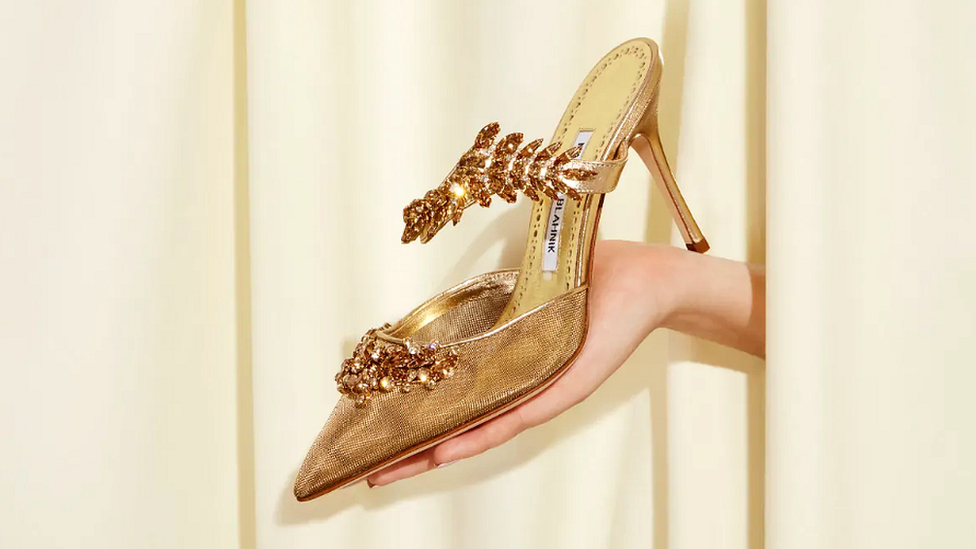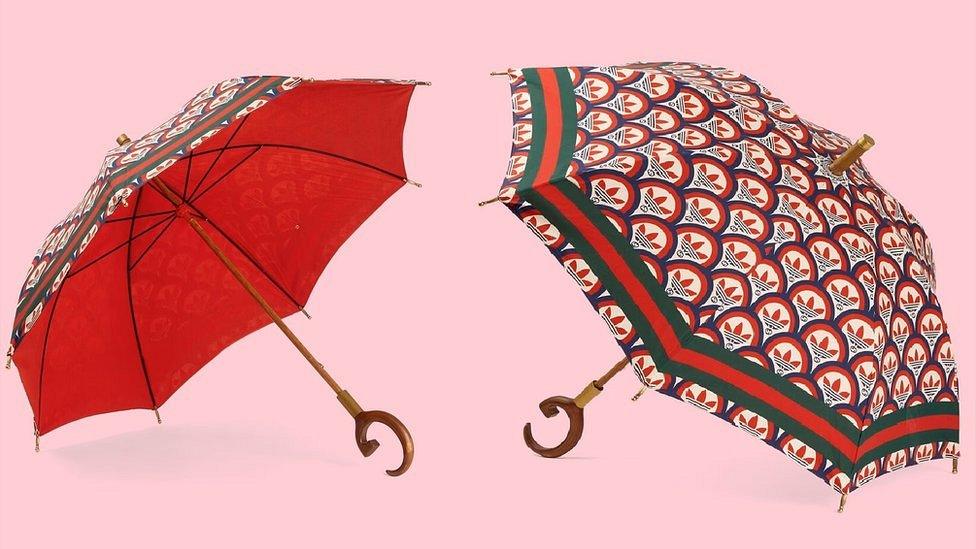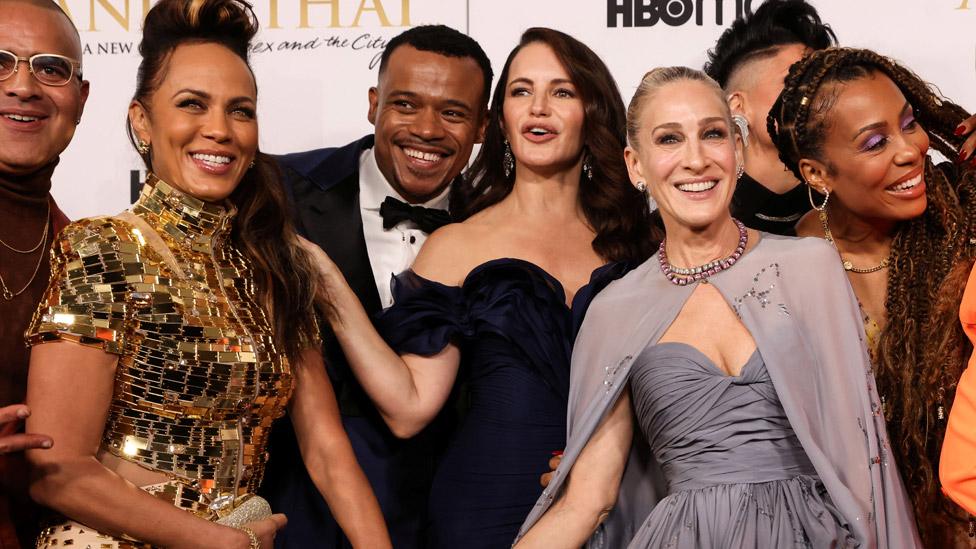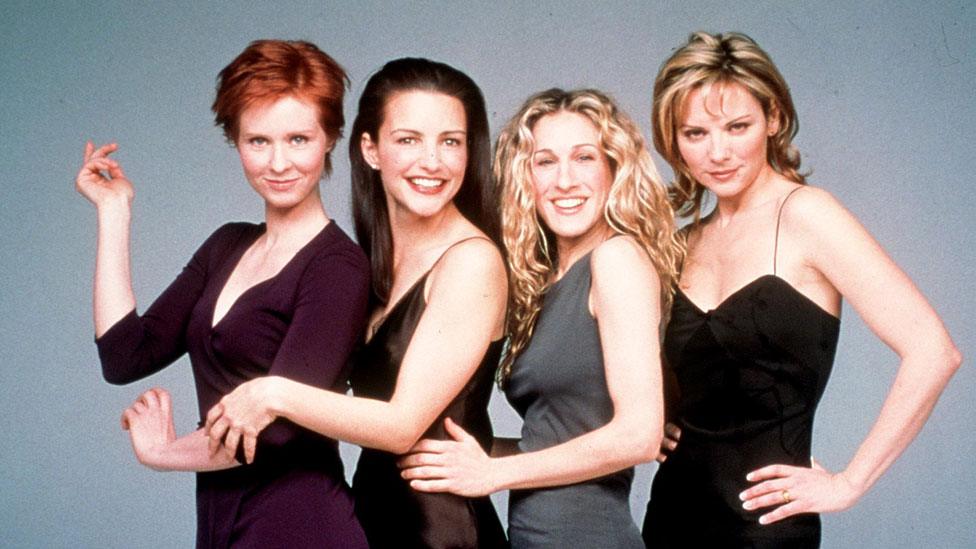Luxury brand Manolo Blahnik wins right to use own name in China
- Published

UK-based luxury brand Manolo Blahnik has won the right to use its name in China following a lengthy legal battle.
The high-end shoemaker has not operated in China for over 20 years, after a local businessman trademarked its name.
Fang Yuzhou registered the trademark "Manolo & Blahnik" and appeared to be selling shoes under the brand.
Manolo Blahnik's signature stilettos were made famous by celebrity customers and appearances in the hugely popular TV series Sex and the City.
In a statement on Tuesday, the company - which is named after its Spanish founder Manolo Blahnik - said it had won its case at the Supreme People's Court of China, which is the country's highest court.
Manolo Blahnik had made several unsuccessful appeals since 2000 to use its name in China, which is one of the world's largest consumer markets.
The company's chief executive Kristina Blahnik, who is Mr Blahnik's niece, said this ruling was "a meaningful victory for my uncle, our family and our team".
The brand plans to start selling its shoes in China next year, Ms Blahnik told the Financial Times newspaper.
"We won't be racing with a rocket into China, but gently walking," she said.
China has "first to file" rules around trademarks, which meant that Mr Fang's claim to the name in 1999 was long viewed to be stronger than Manolo Blahnik's, which was made later under Chinese law.
However, the law has since been amended to consider that filings could be made in "bad faith".
This has resulted in some high profile victories for international brands against Chinese businesses.
Rieko Michishita, a partner at law firm Bird & Bird, told the BBC that Manolo Blahnik's case may be used by brands to prove "the bad faith of trademark squatters".
However, she said some firms could struggle as "not all the cases can rely on a name right, and some brands might not have high reputations like Manolo Blahnik".
Products under the British-based Manolo Blahnik had only been available to Chinese consumers through third-party online platforms, and its regional stores in Japan, Hong Kong, Singapore, Malaysia, Taiwan and South Korea.
The BBC was unable to reach Mr Fang for comment.

You may also be interested in:
Rare and exotic footwear showcased at trainer festival in Glasgow
Related topics
- Published19 May 2022

- Published9 December 2021

- Published22 September 2021

- Published6 June 2018
